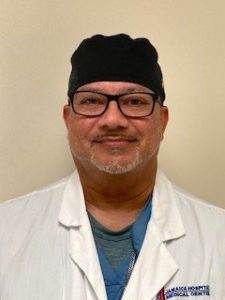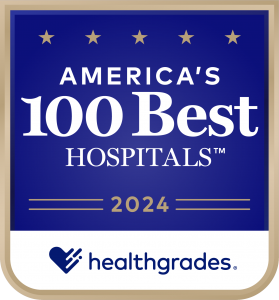 This month, we are proud to shine our Employee Spotlight on Jose Otero, Special Care Associate (SCA) in the Cardiovascular Interventional Unit at Jamaica Hospital Medical Center.
This month, we are proud to shine our Employee Spotlight on Jose Otero, Special Care Associate (SCA) in the Cardiovascular Interventional Unit at Jamaica Hospital Medical Center.
Jose began his employment at the hospital 27 years ago. He is a native of Brooklyn and still resides there. He attended PS 106 and completed his education at Bushwick High School. In his free time he enjoys building things in his home, different types of arts and crafts, painting and woodworking. He likes to improve his home with things that he has constructed on his own. Jose is fond of motorcycles and whenever he has the opportunity, he takes rides through scenic areas in and out of the city. He belongs to a group called the Latin American Motorcycle Association which has over 15,000 members worldwide. The group has members from all different professions who ride for the shear pleasure of being out on the roads, enjoying their time together. One day he hopes to travel to places that he has always wanted to visit.
Jose’s father was a professional musician who played many different types of instruments. This instilled in him a love of a wide variety of musical genres. He feels that through music people can communicate their feelings and music can also make people feel happy. His favorite sport are the martial arts. He has been practicing martial arts for over 30 years and it has become like a religion to him. It takes a great deal of concentration and gives him much inner peace.
Family and friends are very important to Jose. He likes to make people smile whenever possible. He feels that through his interactions with patients he can take away some of the anxiety and stress that they may be feeling. We are very fortunate to have Jose as a member of our team and look forward to having him continue with us for many more years.
All content of this newsletter is intended for general information purposes only and is not intended or implied to be a substitute for professional medical advice, diagnosis or treatment. Please consult a medical professional before adopting any of the suggestions on this page. You must never disregard professional medical advice or delay seeking medical treatment based upon any content of this newsletter. PROMPTLY CONSULT YOUR PHYSICIAN OR CALL 911 IF YOU BELIEVE YOU HAVE A MEDICAL EMERGENCY.







